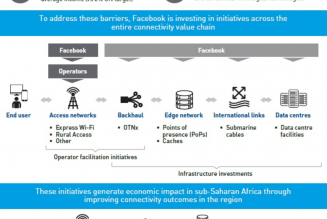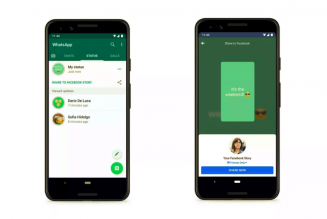With millions working from home, the COVID-19 pandemic has seen the global usage of VPN demand swell. Demand for commercial VPNs (Virtual Private Networks) in the US jumped by 41% between 13 March and 23 March according to research from Top10VPN.com, a VPN research and testing company in the U.K.
Network World writes that VPNs were already a growing industry before the coronavirus outbreak struck the world and the subsequent shutdown of workplaces. The global VPN market was forecast to grow 12% year-on-year and be worth $70-billion by 2026, according to a Global Market Insights 2020 survey. North America was forecast to remain the leader in VPN usage, with around 30% market share.
Top10VPN.com found global VPN demand increased by 41% over the second half of March and remains 22% higher than pre-pandemic levels, with 75 countries seeing significant increases in VPN demand since COVID-19 social restrictions and stay-at-home orders.
Some of the largest increases in VPN demand were in Africa, with Egypt seeing an increase in demand of about 224%. The country also saw a sustained increase (two weeks or more) of about 154%. This was followed by South Africa, which had a sustained increase of 105% during March.
In other parts of the world, Slovenia saw the highest surge in demand after Egypt (169%), followed by Chile (149%). In terms of sustained increase, Peru saw a demand increase of about 119%.
Reasons Cited for VPN Use
Top10VPN’s Global VPN Usage Report 2020 found that 51% of people in the U.S. and the U.K. use a VPN to protect their privacy on public Wi-Fi networks. Another 44% of respondents said anonymous browsing was the main reason for using the VPN, followed by secure communication, cited by 37% of VPN users.
In addition, 20% of American and British respondents use VPNs to access better entertainment content or restricted download, stream, and torrent sites.
Top10VPN also found that use with streaming services was a major driver for VPNs. This is for two reasons. One, Netflix’s library is geographically restricted due to copyright agreements. Two, video quality can be improved with a VPN due to their large, private networks.
Users of VPNs have noted fewer interruptions in their streams and statistics show that in the last month, the global demand for VPN used to watch leading streaming services increased 85%.
Other reasons cited, Network World says, were clearly not work-related. 22% say they use VPNs to access sites/files/services when at work. 21% say they use these services to avoid bandwidth throttling by their ISPs. 20% use VPNs to hide browsing activity from the government, and 18% said to access censored websites/content.
The Hackers Are Coming
With the worldwide rush to the online space, cybercrime, like VPN usage, has exploded. Now more than ever it is essential those working online, living online, seek ways to protect themselves from hackers, cybercriminals, and their malicious works.
The United States Cybersecurity & Infrastructure Security Agency sent out this warning urging users to keep their VPNs patched, which means taking it offline on occasion, as well as using multifactor authentication and extensive use of logging to watch for questionable activity.
Apart from this, there are many other methods one can take to make sure they are protected from cybercrime online.









